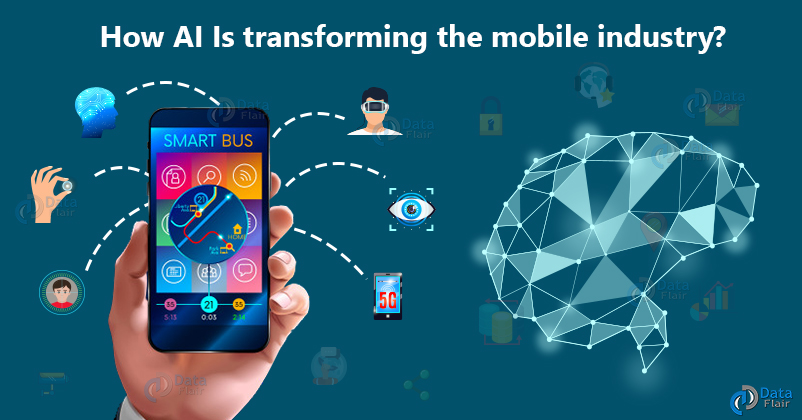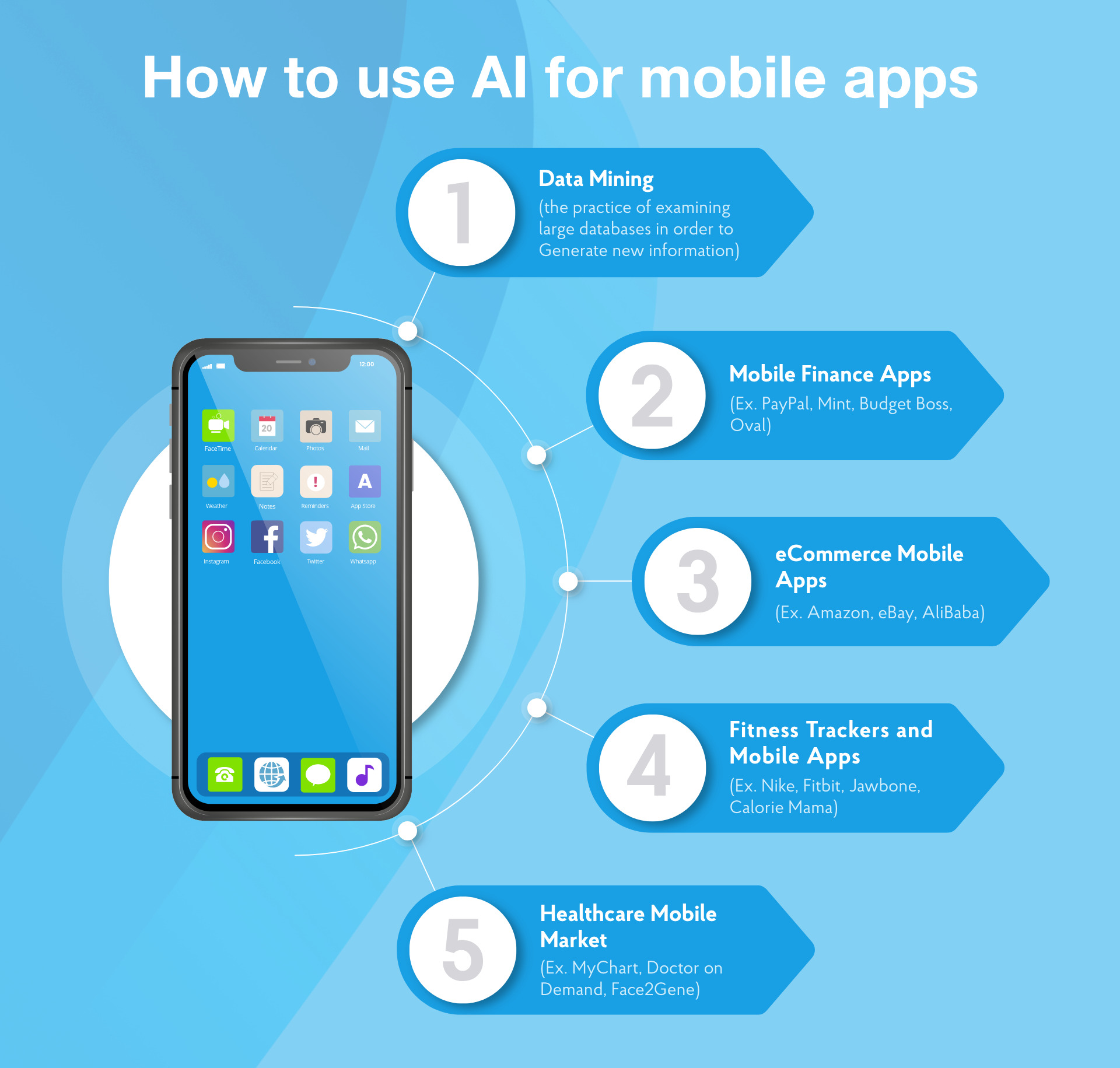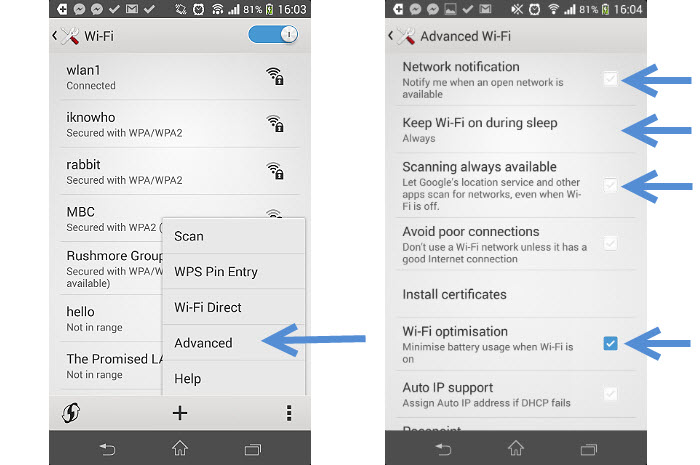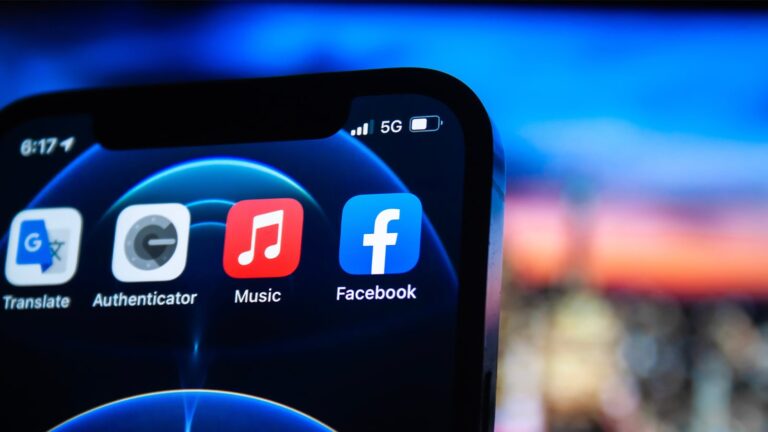How Does AI Work On Mobile Phones?
Artificial Intelligence (AI) is a powerful tool used in many applications and is now being used on mobile phones. AI is a type of software that can learn from and respond to data, allowing it to make decisions and take action on its own. This technology is used in a variety of ways, from assisting with everyday tasks to powering complex applications. In the case of mobile phones, AI can be used to help users with tasks such as voice recognition, image recognition, and natural language processing. AI is also used to power more advanced features, such as facial recognition and augmented reality. The use of AI in mobile phones is becoming increasingly popular as it provides faster and more accurate results than traditional methods.
Overview of AI on Mobile Phones
AI on mobile phones is becoming increasingly popular. As technology advances, more and more devices are integrating AI capabilities. AI on mobile phones is used to perform tasks such as facial recognition, voice recognition, natural language processing, and computer vision. Smartphones are now using AI to better understand their users’ behaviors, enabling them to provide personalized experiences. AI is also able to adjust settings and optimize for battery life, performance, and even security.
AI on mobile phones works by using algorithms and software to identify patterns and learn from data, much like a human brain. The algorithms are designed to recognize patterns, learn from them, and then apply them. As data is collected, AI on mobile phones can learn about the user’s preferences and behaviors. This allows the phone to tailor experiences to the individual user.
AI on mobile phones is used in a variety of ways. For example, it can be used to create personalized music playlists, suggest restaurants, and even detect potential fraud. AI on mobile phones is also used to provide more accurate location tracking and to provide improved search results. Additionally, AI can be used to provide better security and privacy for users, such as facial recognition for unlocking the device.
Overall, AI on mobile phones is a powerful tool that can be used to improve user experience and provide more personalization. It is important to note that AI on mobile phones is still in its early stages and further development is needed before it can reach its full potential. As more advancements are made, AI on mobile phones will become increasingly popular and widely used.
AI Technologies Used on Mobile Phones
AI technologies have become increasingly ubiquitous in our everyday lives, including mobile phones. Artificial intelligence, or AI, is a form of machine learning technology that uses algorithms and computer systems to learn from data and perform tasks like making decisions, solving problems, and recognizing patterns. AI on mobile phones is used to help users perform tasks more quickly and accurately. While the technology is still relatively new, it’s already being used in a variety of ways.
AI-powered voice assistants are becoming commonplace on mobile phones, with apps like Apple’s Siri, Google Assistant, and Microsoft Cortana providing users with quick and accurate answers to their queries. AI can also be used to identify objects and faces in photos, translate text, and even drive cars.
AI-powered chatbots are becoming increasingly popular, allowing users to interact with businesses in a conversational manner. Chatbots can be used to answer customer questions, provide product recommendations, and even book appointments or take orders.
AI-driven facial recognition is also gaining traction on mobile phones. This technology uses algorithms to identify and compare human faces with a database of known faces, making it possible to unlock phones using only one’s face.
Finally, AI-powered personalization is becoming increasingly commonplace. Mobile phones can use AI to track user preferences and tailor content and services to their specific needs.
These are just a few examples of how AI is being used on mobile phones. With the technology continuing to evolve, there’s no telling what other AI-powered capabilities we’ll see in the near future.
Impact of AI on Mobile Phone Performance
Artificial Intelligence (AI) has revolutionized the way mobile phones work and how users interact with them. AI helps mobile phones to adapt to their user’s preferences and can be used to provide personalized experiences. AI-powered mobile phones can learn from their user’s behavior, making them more intuitive and efficient. AI can also be used to improve the performance of mobile phones. AI-powered mobile phones can analyze the user’s activities and adjust the phone’s settings accordingly, which can lead to a better and smoother user experience. AI-assisted phones can also use predictive analytics and machine learning to anticipate the user’s needs, providing a more efficient and faster experience. AI can also help reduce power consumption on mobile phones, enabling users to get more out of their phone’s battery life. AI-based mobile phones can also improve security, as the phone can detect suspicious activities and alert the user in real-time. All these features make AI-powered mobile phones a must-have for anyone looking for a reliable, secure and efficient device.

Security and Privacy Implications of AI on Mobile Phones
In the modern world, Artificial Intelligence (AI) is quickly becoming a driving force behind mobile technology. AI can be used to improve the user experience by providing more personalized features and services. AI can also be used to make mobile devices more secure and efficient, by helping detect malicious software and other security threats. But with the increased use of AI on mobile phones, there are also potential security and privacy implications that must be addressed.
Given the sensitive nature of the data collected by mobile phones, users must be aware of their privacy rights and the potential risks associated with AI-based mobile applications. AI can be used to collect and process large amounts of personal data, and this data can be used to build detailed profiles of users. This information can be used for targeted marketing or sold to third parties, and it can also be used to identify users for malicious purposes.
In addition, AI-enabled devices can also be vulnerable to hacking and other security risks. AI-based applications and services can be targeted by malicious actors, and AI-enabled devices can be used to conduct malicious attacks. Furthermore, AI-powered devices can be used to track the physical location of users, and this can also lead to privacy violations.
For these reasons, it is important for mobile users to understand the security and privacy implications of AI on mobile phones. Mobile users should be mindful of the data they share and the services they use, and they should consider using privacy-enhancing technologies such as encryption and data anonymization. Mobile users should also be aware of their rights under applicable data protection laws, and they should ensure that their AI-enabled devices are regularly updated and secured.
Challenges of Using AI on Mobile Phones
The use of artificial intelligence (AI) on mobile phones has become increasingly popular in recent years. However, the implementation of AI on mobile phones is not without its challenges. One of the main challenges of using AI on mobile phones is the limited processing power available compared to more powerful desktop and laptop computers. This means that AI algorithms must be designed to be more efficient and require less computing resources. Additionally, the small screen size of mobile phones makes it difficult for users to interact with AI-powered applications. User interface design must be tailored to the small size of mobile phones, which can be a difficult task for developers. Furthermore, AI applications can require a lot of data, and mobile phones often have limited storage capacity, making it difficult to store and access the data needed for AI algorithms. Finally, mobile phones are often connected to less reliable networks than desktop computers, making it difficult for AI algorithms to execute in real-time. Despite these challenges, AI is becoming an important part of mobile phones and has the potential to revolutionize the way people interact with their devices.
Future of AI on Mobile Phones
The future of AI on mobile phones is an exciting prospect. AI technology has enabled us to make our lives easier by providing us with personalized experiences and helping us with everyday tasks. The possibilities for mobile phones are endless, as AI can be used to do everything from predicting user behavior to creating customized virtual assistants. AI can also help improve the overall user experience by making the phone faster and more efficient. AI can also help developers create mobile applications that are more interactive and engaging, as well as providing better customer service. AI can even be used to help detect and prevent malicious software and keep mobile phones secure. AI technology is set to revolutionize the way we use mobile phones, and will be an integral part of the future of mobile phones.
FAQs About the How Does AI Work On Mobile Phones?
Q: What types of AI are available on mobile phones?
A: Mobile phones use a variety of AI technologies, including natural language processing, facial recognition, image recognition, and machine learning.
Q: How does AI help mobile phones become more efficient and intuitive?
A: AI helps mobile phones become more efficient and intuitive by providing personalized features and services based on user preferences and behavior. AI can also enable phones to better understand user intent and predict future actions and needs.
Q: How secure is AI on mobile phones?
A: AI on mobile phones is very secure due to advanced encryption protocols and data security measures that are in place. Additionally, AI technologies such as facial recognition and voice recognition are designed to be secure and difficult to spoof.
Conclusion
In conclusion, AI on mobile phones works by using algorithms to process vast amounts of data, which allows the phone to learn from its environment and make decisions accordingly. AI is becoming increasingly common on mobile phones, allowing for smarter, more intuitive user experiences, as well as improved security and faster performance. AI technology is still evolving and improving, so it will be interesting to see what new ways AI can be used on mobile phones in the future.




